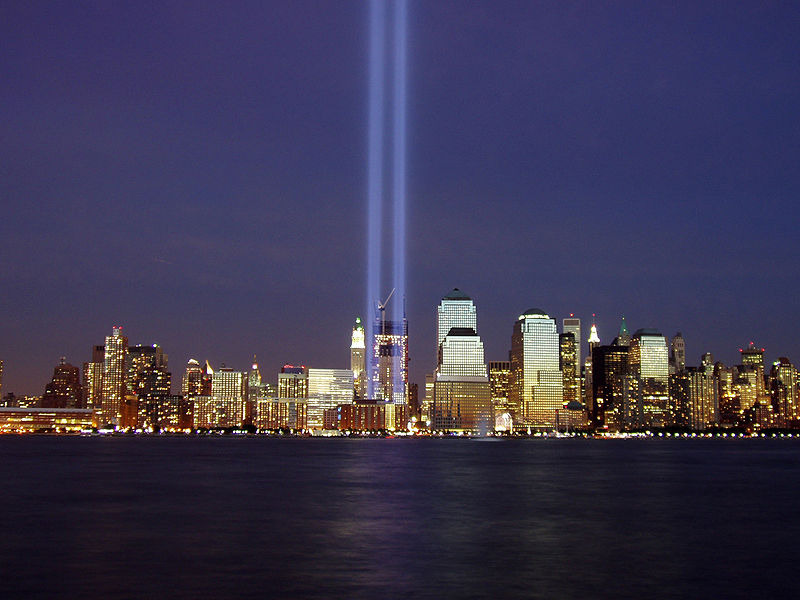The four turnings comprise a quaternal social cycle of growth, maturation, entropy, and death (and rebirth). In a spring like High, a society fortifies and builds and converges in an era of promise. In a summer like Awakening, it dreams and plays and exults in an era of euphoria. In an autumnal Unraveling, it harvests and consumes and diverges in an era of anxiety. In a hibernal Crisis, it focuses and struggles and sacrifices in an era of survival. When the saeculum is in motion, therefore, no long human lifetime can go by without a society confronting its deepest spiritual and worldly needs. -The Fourth Turning
Nine years after the attack on the World Trade Center the mood of the country hastransformed dramatically. I watched the horror on a TV in a conference room at work with my colleagues. I remember being in a daze for a few days after the attack. When it becameunambiguous that Osama bin Laden masterminded the attacks and was being protected by the Taliban in Afghanistan, I wanted justice. The entire world rallied around the US. There was worldwide support for the United States' right to attack Afghanistan and kill the perpetrators.
In the days immediately following the attacks,there were many memorials and vigilsaround the world. In addition, pictures were placed all overGround Zero.A witness described being unable to "get away from faces of innocent victims who were killed. Their pictures are everywhere, on phone booths, street lights, walls of subway stations. Everything reminded me of a huge funeral, people quiet and sad, but also very nice. Before, New York gave me a cold feeling; now people were reaching out to help each other."
There was a feeling of unity in the country for a brief shining moment. If the year had been 2007, rather than 2001, that unity may have been sustained. Anyone who had read Strauss & Howe's 1997 book The Fourth Turning waslikely trying to figure out if the 9/11 attacks were the trigger for the Fourth Turning. But it was too soon. As Strauss & Howe relate in the book, a turning can be sudden or subtle:
"The gateway to a new turning can be obvious and dramatic (like the 1929 Stock Crash) or subtle and gradual (like 1984's Morning in America). It usually occurs two to five years after a new generation of children starts being born. The tight link between turning gateways and generational boundaries enables each archetype to fill an entire phase-of-life just as the mood of an old turning grows stale and feels ripe for replacement with something new."
Unraveling CultureThe Unraveling, which had begun in 1984, had not run its course by September 11, 2001. Turnings generally last for 20 to 25 years. In 2001, we were only 17 years into the Unraveling. The mood of the country had not developed to the point where a consensus could be built to addressa national Crisis. We had been attacked, but our very existence as a nationhad not been threatened. The 9/11 attacks heightened the feeling of anxiety in the country and put us on the pathtowards a great Crisis. Strauss & Howe explained the phases of an Unraveling in the book:
"An UNRAVELING begins as a society-wide embrace of the liberating cultural forces set loose by the Awakening. People have had their fill of spiritual rebirth, moral protest, and lifestyle experimentation. Content with what they have become individually, they vigorously assert an ethos of pragmatism, self-reliance, laissez faire, and national (or sectional or ethnic) chauvinism.
While personal satisfaction is high, public trust ebbs amid a fragmenting culture, harsh debates over values, and weakening civic habits. The sense of guilt (which rewards principle and individuality) reaches its zenith. As moral debates brew, the big public arguments are over ends, not means. Decisive public action becomes very difficult, as community problems are deferred. Wars are fought with moral fervor but without consensus or follow-through.
Eventually, cynical alienation hardens into a brooding pessimism. During a High, obliging individuals serve a purposeful society, and even bad people get harnessed to socially constructive tasks; during an Unraveling, an obliging society serves purposeful individuals, and even good people find it hard to connect with their community. The approaching specter of public disaster ultimately elicits a mix of paralysis and apathy that would have been unthinkable half a saeculum earlier. People can now feel, but collectively can no longer do." -The Fourth Turning
(Note: You can view every article as one long page if you sign up as an Advocate Member, or higher).






